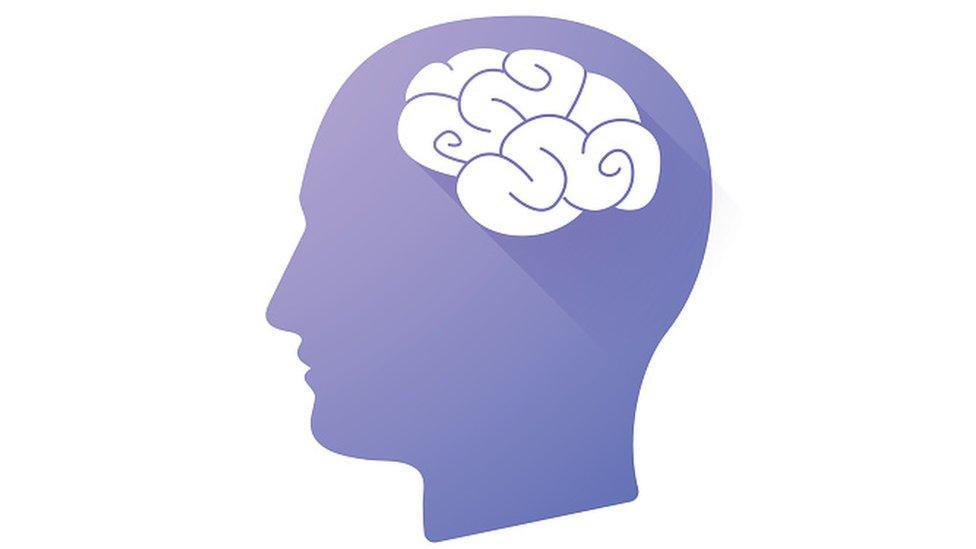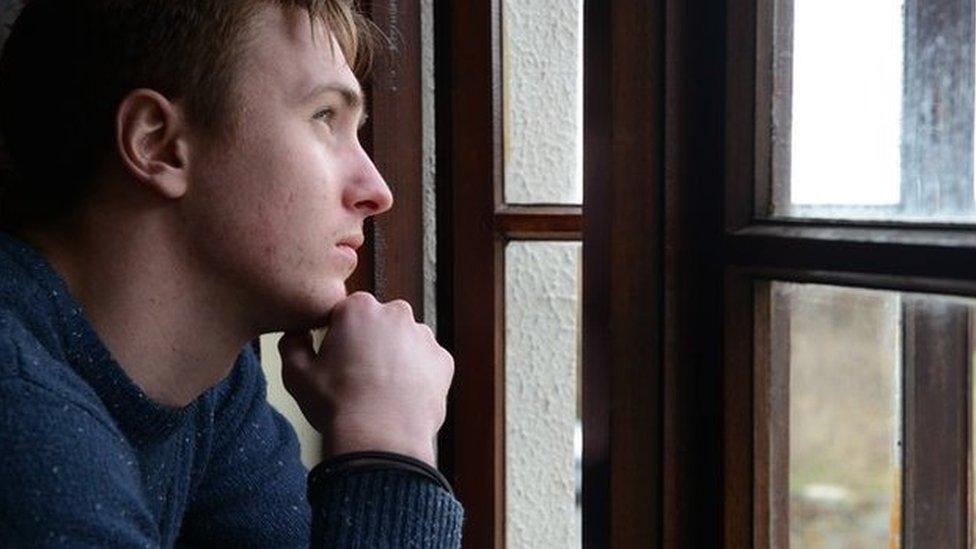What hip ops tell us about mental health care
- Published

In the modern NHS, a hip replacement is a pretty routine operation. More than 50,000 are carried out each year.
People normally get a referral from their GP and then go on to a waiting list. The majority go under the knife within a few months and are able to plan and prepare for the surgery to try to avoid too much disruption to their everyday lives. For most, it's a pretty easy experience compared with other operations.
But for people with mental health problems, it's a completely different picture. Four in 10 get a hip replacement only after being admitted as an emergency, according to a recent study, external published by the Nuffield Trust.
Consider that for a moment: their health - and presumably pain - has deteriorated so much that they are rushed in and operated on immediately.
What causes this? Experts suspect it's just another sign of how mental health patients lose out. Their physical ailments are being ignored or missed by a system that struggles to cope with simply meeting their mental health needs.

The mental health burden
One in four people will experience some kind of mental health problem in the course of a year, with anxiety and depression disorders the most common
One in 10 children has a mental health problem at any one time
In the UK, men are three times as likely to kill themselves as women are
The UK has one of the highest self-harm rates in Europe - there are 400 cases per 100,000 population
Only one in 10 prisoners has no mental health disorder
Source: Mental Health Foundation

It should not be like this. Mental health has long been talked about by those in power as a Cinderella service. The poor cousin of the NHS.
While remarkable progress has been made in everything from trauma care to cancer services, mental health has been left behind.
A review by the Care Quality Commission published earlier this year warned there was inadequate support for those who needed urgent help.
The CQC looked at the help given to people in a mental health crisis. This includes people who are suicidal, having serious panic attacks or psychotic episodes.
It highlighted the plight of one patient who called their local crisis support team for help. It took seven hours for support to arrive - and even then it came in the form of a phone call.
A similar physical ailment would - or at least should - be answered by an ambulance in a matter of minutes.

Meanwhile, targets have been introduced to try to ensure patients get access to early intervention in the form of talking therapies.
By next April, three-quarters of patients should get help within six weeks of a referral, but in some places less than 5% currently are.
But it is not just adults who are losing out. Children are too. A study by the NSPCC earlier this month indicated more than a fifth of children referred to mental health services in England had been refused treatment.
The charity called this a time bomb - by not treating problems in childhood, the service was simply storing them up for later life.
Next month, NHS England's task force is expected to publish plans to overhaul mental health services.
More money has already been promised - an extra £1.25bn for children and young people over the course of this Parliament and more likely for adult services.
That has the potential to go a long way. It needs to. There is a mountain to climb.
- Published22 October 2015
